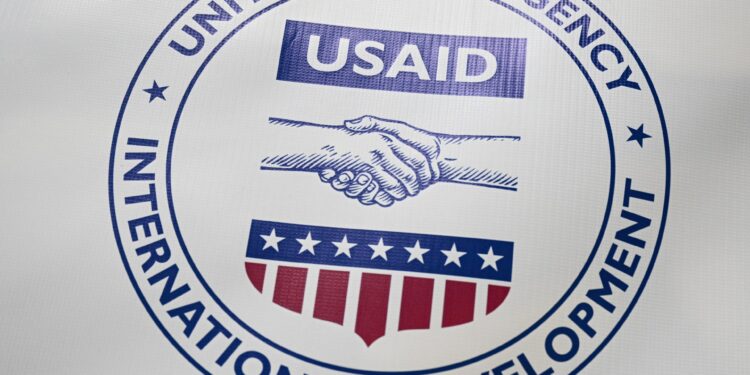The United States’s commercial and economic policy is witnessing a radical transformation after President Donald Trump began implementing his strategy based on customs taxes, not only to pressure the major countries, but also as a tool to reshape the global economic scene, according to Bloomberg.
These policies are not limited to commercial taxes, but also extend to the suspension of external aid, and this may lead to catastrophic repercussions in many developing countries.
Aid management in a state of chaos
According to Bloomberg, the US Agency for International Development “US ID” has become an unstable position after the closure of its website and the position of its senior officials under administrative leave. “This agency is managed by a group of extremists, and we will take firm measures on it,” Trump said.
As for Elon Musk, who heads the Ministry of Governmental Efficiency, who was a party in a sharp confrontation on reaching the agency’s systems, he described it as a “criminal organization”, according to Bloomberg.
The disturbance that directly occurred on many humanitarian programs, as the services stopped temporarily, and this raised fears of serious repercussions on the beneficiaries of them.
Dangerous repercussions on global health programs
Bloomberg data indicates that about 222,000 people around the world depend daily on anti -HIV drugs (AIDS), which is funded by the American AIDS Emergency Program known as Pepar.
Although the US administration included AIDS treatment services in the list of exceptions temporarily, the interruption of operations already has a negative impact on patients.
Bloomberg explains that this stopping may lead to the interruption of treatment for patients and make them vulnerable to serious health risks, and this may increase the spread of the disease globally.
Stopping aid threatens the stability of developing countries
Bloomberg confirms that the freezing of US aid worth $ 72 billion is directed to some of the poorest countries in the world that may exacerbate humanitarian crises, increase illegal immigration, outbreaks of conflicts, and high marine piracy activity in some strategic areas.
The most prominent example of this is South Africa, as the country relies heavily on the financing of Pepar, as the fifth of the population there are HIV.
Trump announced that Washington will stop all future aid to South Africa in response to its legislation for a new law to confiscate land, which he described as “economically unacceptable.”
Will Washington give up its influence in favor of China?
According to the Bloomberg report, reducing American aid gives China a golden opportunity to enhance its presence in the global south by providing alternative aid and investments.
Expectations indicate that Beijing may take advantage of this vacuum to enhance its political and economic influence in Africa, Asia and Latin America.
In another context, Bloomberg reported that the European Union warned that it would take “firm measures” if Washington imposes customs taxes on the goods of the union countries. Warsaw’s economy ministers are scheduled to hold an emergency meeting to discuss the possibility of responding to these policies.
Policy of the stick without the carrot
While Trump continues to use customs taxes as a means of pressure on rich governments, his decision to suspend external aid may have long -term consequences.
China and the European Union seem closely watching the situation, at a time when fears of the global economy are increasing in a new turmoil.
UN concern
For his part, UN spokesman Stephen Dujarric said on Monday that the United Nations “is definitely concerned about the impact of the growing registration measures on the global economy, especially in developing countries and in places where there are people at risk.”
Regarding the cessation of US foreign aid, Dujarric said: “Some have an immediate impact on the activities of saving lives.”



